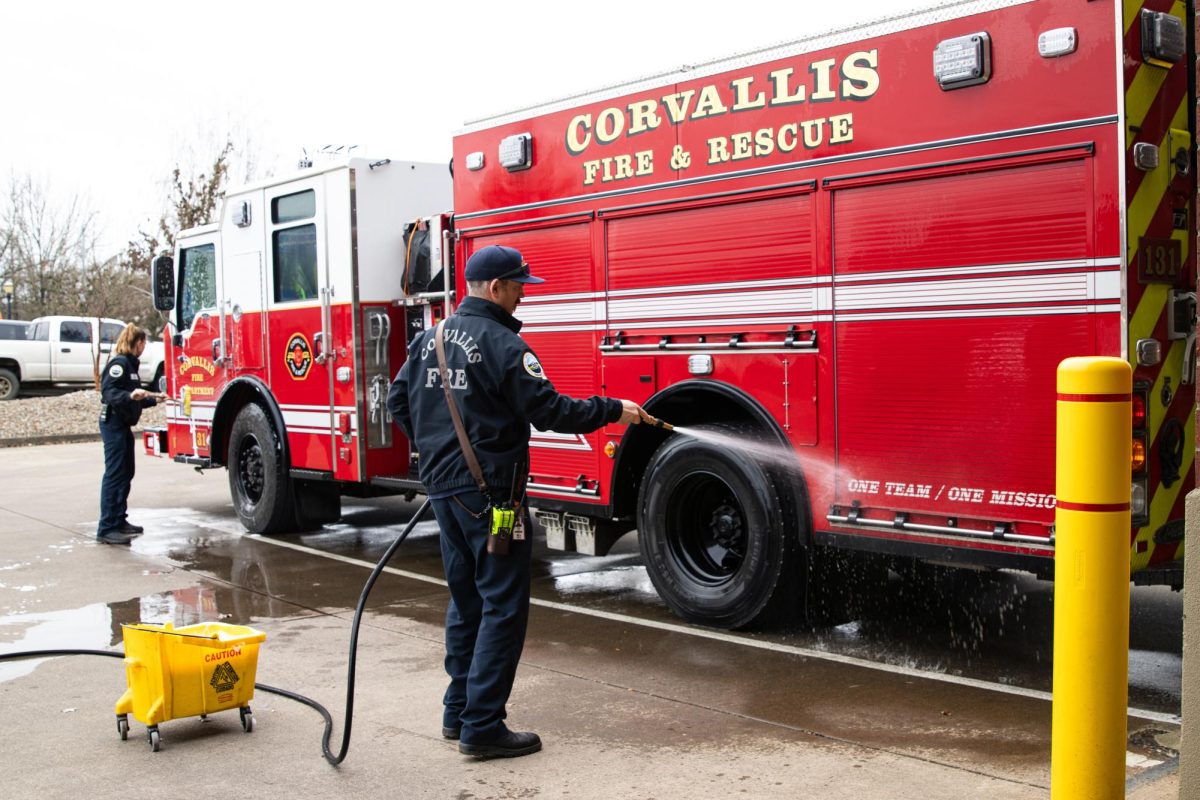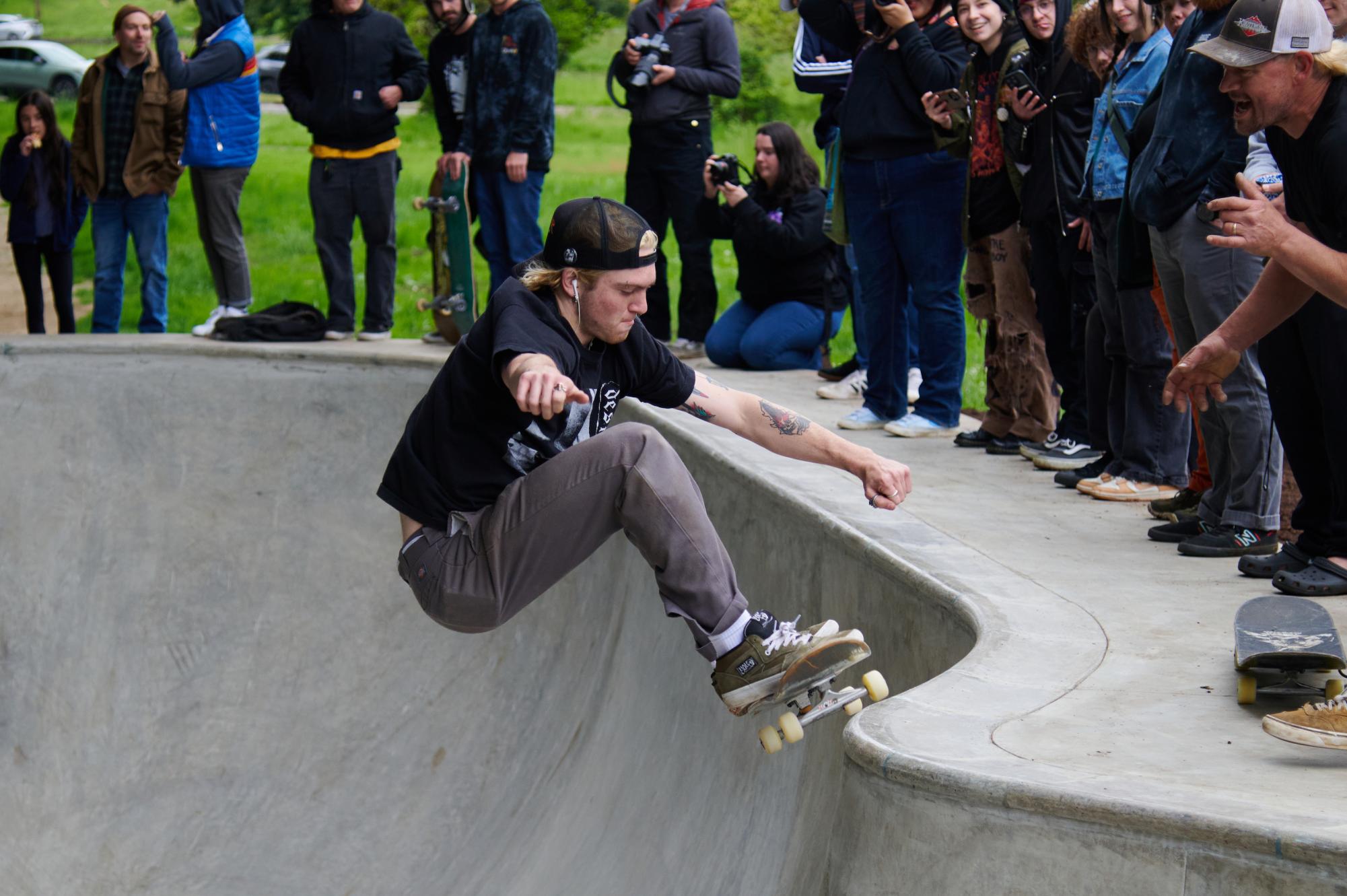Skaters of all ages took turns dropping into the brand new, 2,812 square foot bowl at Eric Scott McKinley Skate Park on Saturday, April 27.
The event, called Bowl Shred, commemorated the bowl’s opening and brought live music, onlookers, free pizza, a raffle and eager skateboarders to the skate park under Highway 34.
The existing skate park, which is directly adjacent to the new bowl, consists of mostly flat ground features and is suited for beginner and intermediate-level skaters, according to Vaughn Balzer, president of the Benton County Skateboarding Alliance. Prior to the bowl’s construction, there was no vert (“vertical” skateboarding) terrain for more advanced skaters, and according to Balzer the bowl has already brought traffic to Corvallis.
The bowl’s cost totaled roughly $390,000, which ended up being above Balzer’s original estimate. In 2007, Balzer formed the BCSA, a nonprofit organization, and began raising donations for the bowl, including a significant anonymous donation.
The project also took longer than expected to complete, Balzer said, with the BCSA having to obtain several permits for its construction. Additionally, the bowl had to be built at an elevated level to avoid disrupting existing fiber optic and sewage infrastructure. A drain was also installed in the bowl, so that flooding would not cause the bowl to float out of the sediment it rests in.
The Wobblies, an Oregon punk band, was one of a few bands contributing live music. Balzer said the band also played at the BCSA’s first art and music benefit in 2008.
A raffle awarded prizes such as skateboard decks, wheels and shirts, with any money donated going directly to bands playing at the event, according to Balzer.
Beside the bowl, Phil Tetter Jr., Corvallis local and owner of Tetter Stone (which constructed the concrete coping within the bowl), conversed with confidant Marty Musch on the history of the skating scene in Corvallis before Musch dropped into the bowl. The pair discussed what they said was a legendary ramp constructed in Avery Park in the 1980s, which drew widespread attention from the skating community.
“That was pretty revolutionary,” Tetter said. “A lot of people got to skate it and it was pretty well known.”
According to Musch, the ramp was inspired by wooden backyard ramps, which unlike the Avery Park project, are not constructed with long-term use in mind and tend to deteriorate from exposure to the Oregon weather. The ramp, according to Tetter, was shut down by the city in the early 1990s because the two-by-fours used to build it were allegedly not pressure-treated.
Also present at Bowl Shred was the organization Build A Better Skatepark, which hopes to similarly gather community support for the construction of a new skatepark in Philomath in collaboration with the city.


















































































![Newspaper clipping from February 25, 1970 in the Daily Barometer showing an article written by Bob Allen, past Barometer Editor. This article was written to spotlight both the student body’s lack of participation with student government at the time in conjunction with their class representatives response. [It’s important to note ASOSU was not structured identically to today’s standards, likely having a president on behalf of each class work together as one entity as opposed to one president representing all classes.]](https://dailybaro.orangemedianetwork.com/wp-content/uploads/2025/03/Screenshot-2025-03-12-1.00.42-PM-e1741811160853.png)

























